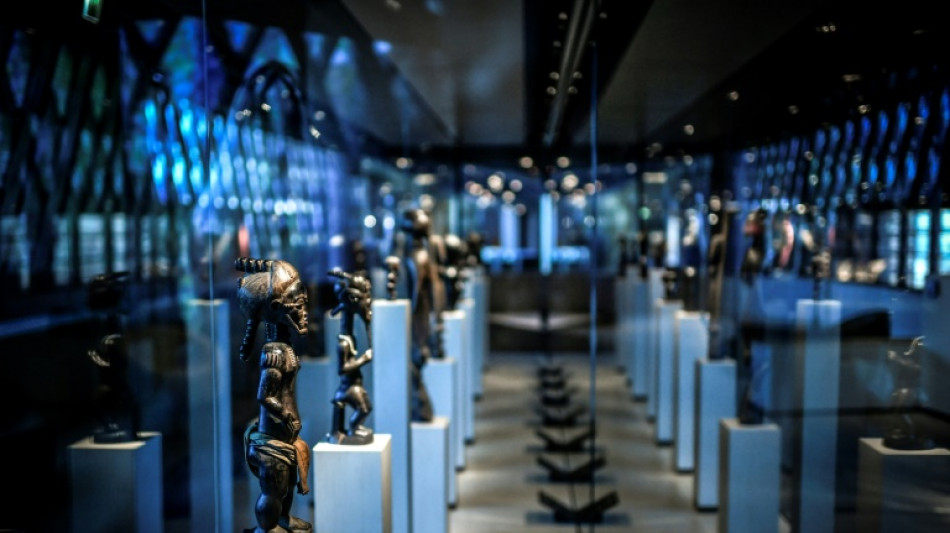
-
 American Stolz wins second Olympic gold in speed skating
American Stolz wins second Olympic gold in speed skating
-
Marseille start life after De Zerbi with Strasbourg draw

-
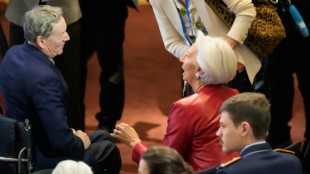 ECB to extend euro backstop to boost currency's global role
ECB to extend euro backstop to boost currency's global role
-
Canada warned after 'F-bomb' Olympics curling exchange with Sweden

-
 Ultra-wealthy behaving badly in surreal Berlin premiere
Ultra-wealthy behaving badly in surreal Berlin premiere
-
250,000 at rally in Germany demand 'game over' for Iran's leaders

-
 UK to deploy aircraft carrier group to Arctic this year: PM
UK to deploy aircraft carrier group to Arctic this year: PM
-
Zelensky labels Putin a 'slave to war'

-
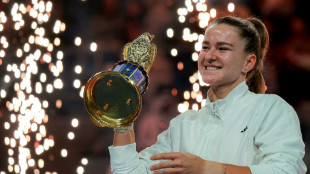 Resurgent Muchova beats Mboko in Qatar final to end title drought
Resurgent Muchova beats Mboko in Qatar final to end title drought
-
Farrell hails Ireland's 'unbelievable character' in edgy Six Nations win

-
 Markram, Jansen lead South Africa to brink of T20 Super Eights
Markram, Jansen lead South Africa to brink of T20 Super Eights
-
Guehi scores first Man City goal to kill off Salford, Burnley stunned in FA Cup

-
 Swiss say Oman to host US-Iran talks in Geneva next week
Swiss say Oman to host US-Iran talks in Geneva next week
-
Kane brace helps Bayern widen gap atop Bundesliga

-
 Ireland hold their nerve to beat gallant Italy in Six Nations thriller
Ireland hold their nerve to beat gallant Italy in Six Nations thriller
-
European states say Navalny poisoned with dart frog toxin in Russian prison

-
 Braathen hails 'drastic' changes after Olympic gold
Braathen hails 'drastic' changes after Olympic gold
-
De Minaur eases past inconsistent Humbert into Rotterdam final

-
 Eurovision 70th anniversary live tour postponed
Eurovision 70th anniversary live tour postponed
-
Cuba cancels cigar festival amid economic crisis
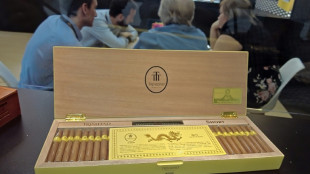
-
 Son of Iran's last shah urges US action as supporters rally in Munich
Son of Iran's last shah urges US action as supporters rally in Munich
-
Jansen helps South Africa limit New Zealand to 175-7

-
 Braathen wins unique Winter Olympic gold for Brazil, Malinin seeks answers
Braathen wins unique Winter Olympic gold for Brazil, Malinin seeks answers
-
Relatives of Venezuela political prisoners begin hunger strike after 17 freed
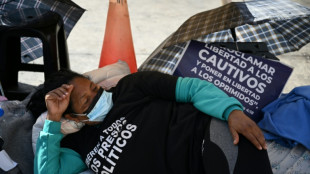
-
 Ten-man West Ham survive Burton battle to reach FA Cup fifth round
Ten-man West Ham survive Burton battle to reach FA Cup fifth round
-
International crew set to dock at space station

-
 Suryakumar says India v Pakistan 'not just another game'
Suryakumar says India v Pakistan 'not just another game'
-
Brazilian Olympic champion Braathen is his own man - and Norway's loss

-
 About 200,000 join Iran demonstration in Munich: police
About 200,000 join Iran demonstration in Munich: police
-
Where did it all go wrong for 'Quad God' Malinin?

-
 Brazil's Braathen wins South America's first ever Winter Olympic gold
Brazil's Braathen wins South America's first ever Winter Olympic gold
-
Banton powers England to victory over Scotland at T20 World Cup

-
 Zelensky says all Ukrainian power plants damaged, calls Putin 'slave to war'
Zelensky says all Ukrainian power plants damaged, calls Putin 'slave to war'
-
Palestinian leader urges removal of all Israeli 'obstacles' on Gaza ceasefire

-
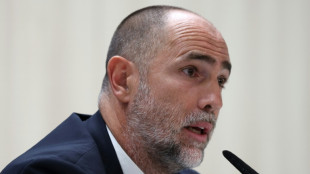 Igor Tudor hired as Tottenham interim manager
Igor Tudor hired as Tottenham interim manager
-
Rubio tells Europe to join Trump's fight, says it belongs with US

-
 Winter Olympians have used 10,000 condoms
Winter Olympians have used 10,000 condoms
-
Weston's skeleton Olympic gold a triumph over adversity

-
 England bowl Scotland out for 152 in T20 World Cup
England bowl Scotland out for 152 in T20 World Cup
-
Bangladesh PM-to-be Rahman thanks those who 'sacrificed for democracy'

-
 Sabalenka, Swiatek withdraw from WTA 1000 event in Dubai
Sabalenka, Swiatek withdraw from WTA 1000 event in Dubai
-
Brazil's Braathen in pole for historic Olympic giant slalom medal

-
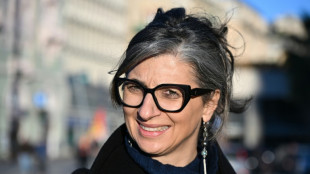 Top entertainment figures back under-fire UN Palestinians expert
Top entertainment figures back under-fire UN Palestinians expert
-
Pakistan 'always ready' for India despite late green light: Agha
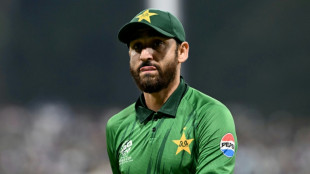
-
 Rubio tells Europe it belongs with US, calls it to join Trump's fight
Rubio tells Europe it belongs with US, calls it to join Trump's fight
-
Tucker stars as Ireland crush Oman by 96 runs at T20 World Cup
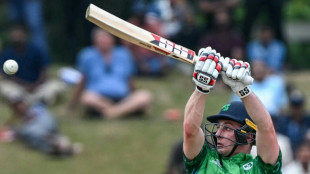
-
 Rubio tells allies US and Europe 'belong together'
Rubio tells allies US and Europe 'belong together'
-
Snowboarding monk in spotlight after S. Korea's Olympic glory
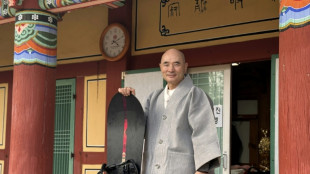
-
 Bangladesh's Tarique Rahman poised to be PM as Islamists concede
Bangladesh's Tarique Rahman poised to be PM as Islamists concede
-
What does Greenland's mining industry look like?


'Titanic' task of finding plundered African art in French museums
With tens of thousands of African artworks in French museums, curators face a huge task in trying to identify which of these were plundered during colonial rule in the 19th and 20th centuries and should be returned.
During a visit to Burkina Faso in 2017, French President Emmanuel Macron pledged to return "African heritage to Africa" within five years, pushing other former colonial powers, including Belgium and Germany, to launch similar initiatives.
In 2021, France repatriated 26 royal treasures its soldiers took from Benin during colonial rule.
The effort has stalled, and in March the government indefinitely postponed a bill authorising the return of African and other cultural artefacts following right-wing resistance in the Senate.
French museums are nonetheless studying the origins of some 90,000 African objects in their archives.
Most -- 79,000 -- are in the Quai Branly museum in Paris dedicated to indigenous art from Africa, Asia, Oceania and the Americas.
The task is "titanic and exhilarating", said Emilie Salaberry, head of the Angouleme Museum, which houses around 5,000 African objects.
"It's turned upside down how we understand our collections," she told AFP.
- 'Real investigative work' -
Identifying an object's provenance is becoming central to museum work, but tracking down the necessary information is hard and time-consuming.
France's Army Museum began its inventory in 2012 but has only been able to study around a quarter of its 2,248 African pieces.
And while it says there is a "reasonable hypothesis" that many are spoils of war, it has struggled to establish definitive conclusions.
"The main difficulty... is the relative lack of sources," a museum spokesperson told AFP.
Emilie Giraud, president of ICOM France, which oversees 600 museums, said: "It's real investigative work which requires cross-checking clues and finding sources that may be scattered, sometimes abroad, or might not even exist at all."
It is hoped the task will grow easier as this type of research becomes commonplace.
The University of Paris-Nanterre introduced a course dedicated to provenance in 2022, and the Louvre School at the heart of the famed museum followed suit in 2023.
Germany and France launched a three-year, 2.1-million-euro ($2.2 million) fund for provenance research in January.
"We need to be transparent about everything, including the inadequacies of our catalogues, our dating, and our designations," said Katia Kukawka, chief curator of the Aquitaine Museum, calling the job an "ethical imperative".
– Frustrated efforts -
To ease the cost burden, the Aquitaine Museum, which has 2,500 African objects, is pooling resources with other organisations, including museums in Gabon and Cameroon.
But without the proposed law, it remains uncertain what criteria will determine when an object must be returned to Africa.
If it was illegally acquired, that might be sufficient, said Salaberry, of the Angouleme Museum, but the lack of clear historical records will continue to frustrate restitution efforts.
"There will be an enormous number of objects for which light can never be shed," she said.
Loans and long-term retainers could be an alternative to full restitution -- as Britain recently did for items from the Ashanti, or Asante, royal court in Ghana.
But not everyone was impressed with that.
As Nana Oforiatta Ayim, a culture adviser to Ghana's government, told the BBC: "Someone comes into your home and steals something, keeps it in their house, and then X amount of years later comes up and says 'I'm going to lend you your things back'.
"It doesn't make any sense."
P.Martin--AMWN

